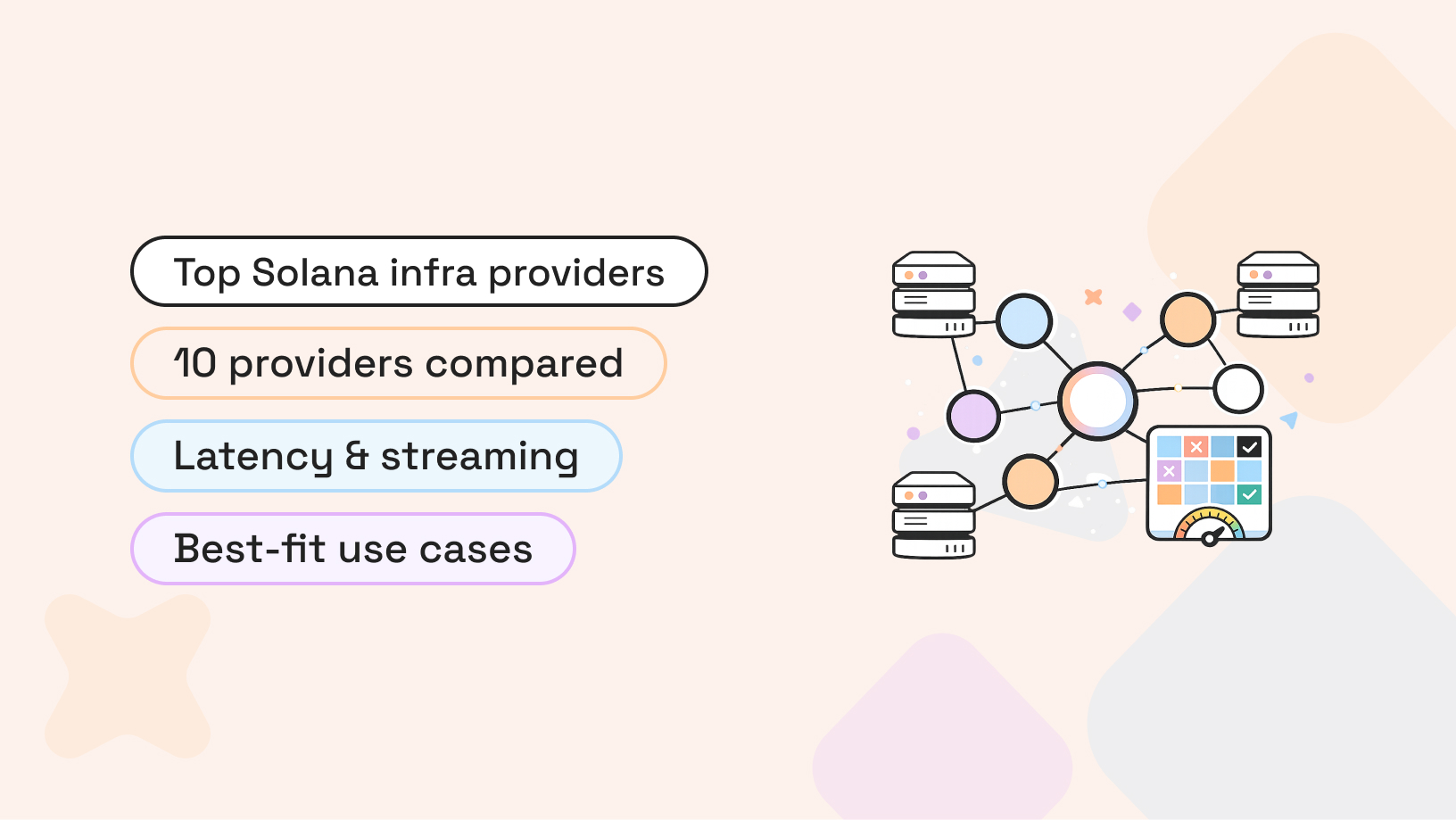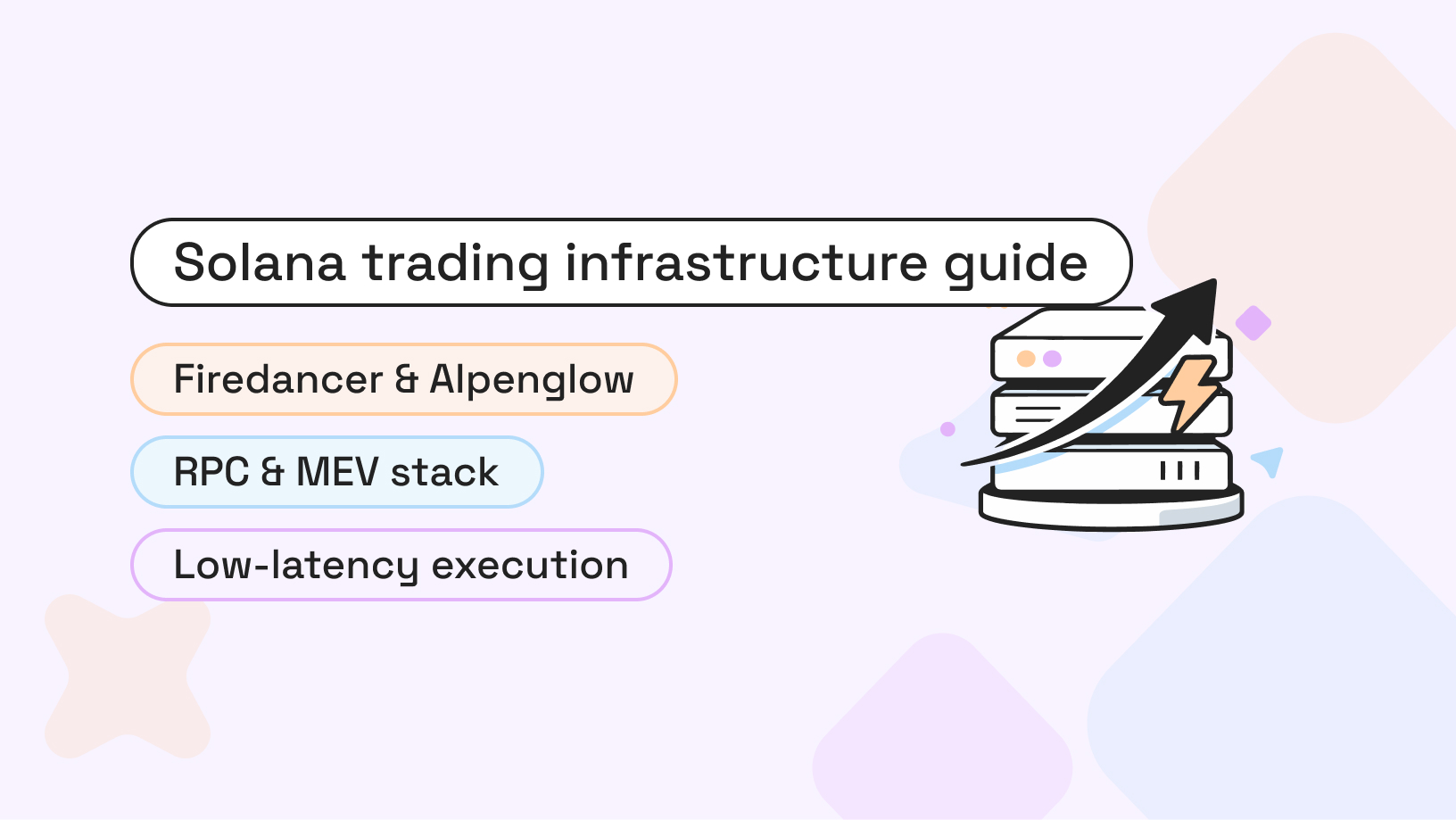.avif)
A London insurance executive, a Dubai supply chain manager, and a Berlin-based healthcare innovator—they are all on their path to blockchain adoption. They're all eager to leverage blockchain technology without additional hurdles, but the complexity of setting up and maintaining their infrastructure is a headache at the very beginning. This situation emphasizes what industry reports consistently highlight: the infrastructure challenges are a major barrier to blockchain adoption, particularly for businesses across Europe, the US, and the Middle East. This is where Blockchain Infrastructure as a Service (BIaaS or simply BaaS) steps in as a solution.
In this article, we jump over the basics of the blockchain (like what is blockchain infrastructure), why it may cause severe headaches while managing on-chain data, the tech and tools involved in it, explore real-life success stories, key benefits, and how it can be the catalyst for your enterprise's growth if you take a simpler tour via BaaS.
Sometimes a simpler solution is the right one!
What is blockchain infrastructure?
At its core, chain infrastructure comprises the blockchain hardware, software, and organizational resources (like Web3 APIs connections) necessary to deploy, manage, and scale blockchain networks. This infrastructure includes nodes, that store copies of the blockchain ledger and validate transactions. Nodes work in tandem to ensure the network's integrity and security.
However, setting up and maintaining these nodes is no small feat:
- Configuring the hardware,
- Ensuring uninterrupted connectivity,
- Implementing robust security measures,
- Continually updating the software to keep pace with technological advancements,
- Aligning with regulation requirements.
Moreover, blockchain infrastructure must support high transaction throughput, low latency, and seamless scalability to accommodate growing transaction volumes as your business expands.
For many enterprises, especially those new to blockchain technology, building and managing this infrastructure in-house can flush their budget in weeks. It requires meticulous planning, in the first place, and tech expertise or at least guidance to lean on. This risk often becomes a barrier, preventing businesses from successfully embracing blockchain's transformative powers.
By outsourcing leading blockchain infrastructure, companies can bypass the technical challenges and focus on leveraging blockchain for innovation and growth.
What is Blockchain Infrastructure as a Service, and how does it work?
BIaaS providers offer everything from hosting nodes to managing networks and ensuring top-notch security. The best of them is a dedicated team of blockchain experts on call 24/7. But typically, you won’t need them much during your work.
For our heroes, who are only considering variants of blockchain implementation, adopting BIaaS meant transforming their company's operations. Downtime became a thing of the past, security was no longer a concern, and scalability issues vanished. A team could focus on what they do best: innovating and driving the business forward.
Other benefits of BaaS
How BaaS works
Inside any BaaS service, you may find tech-savvy experts who specialize in setting up, maintaining, securing, and scaling blockchain nodes of different types and for various blockchains. They have dedicated resources and care about absolute availability to run and support their nodes to give you access at the moment you need them.
But you, as their client, might be interested in how things look from your perspective:
1. Selection and subscription to node providers: You subscribe to your blockchain partner, which grants access to an array of blockchain tools and services.
2. Node hosting and management: The provider handles the installation, configuration, and continuous monitoring of blockchain nodes. These nodes are essential for maintaining the blockchain ledger, validating transactions, and ensuring network security.
3. User-friendly dashboards: BIaaS platforms often include intuitive dashboards that allow businesses to monitor their blockchain activities in real time. These dashboards facilitate the management of smart contracts and the scaling of operations as needed.
4. Security, scaling, additional nodes, and other features implementation: Security is a top priority for BIaaS providers. They implement advanced encryption, secure key management, and conduct regular security audits to protect against potential threats. You may get any other services for your node from your provider.
Hope, that now you can answer the question of what is blockchain as a service. Perfection is limitless, but there are surely a few downsides to working with BaaS providers.
Blockchain infrastructure service pitfalls
Here we’ll describe typical pitfalls connected with BaaS providers and how to avoid them. In a perfect world, we all have the technical capabilities and resources to run our nodes alone, but in reality, we have to choose wisely taking care of details and risks.
Best practices for selecting BaaS for crypto startups
The success of your project in DeFi is highly dependent on its crypto infrastructure, the nodes’ quality, and how efficiently they work together. So we picked up 3 best practices to follow while choosing the BaaS provider for your business.
The first best practice is to thoroughly assess the innovation capacity and flexibility of the BIaaS provider. Your cryptocurrency infrastructure might need extra developer tools and analytics, which can give your business a competitive edge, or other additional applications to merge with your project.
To gauge the innovative potential of a provider, research their latest projects, read whitepapers, and examine case studies and customer testimonials. Additionally, discuss with potential providers how they can tailor their services to meet your specific business requirements. Ensure they are willing to customize their offerings to suit your needs, allowing for adjustments as your business evolves.
Another critical aspect to consider is the security and compliance measures implemented by the BaaS provider. Advanced encryption and secure key management is a basic pack of security services you’re looking for.
Ask for the results of the security audits of the provider’s infrastructure to ensure they have robust security measures and regularly updated protocols to protect your data. Verify that the provider adheres to relevant laws and standards, ensuring they can navigate the regulatory requirements that matter for your project.
Finally, it’s vital to evaluate the provider’s scalability and financial stability. Crypto infrastructure must demonstrate their ability to scale operations to meet the demands of their clients. This involves ensuring their infrastructure can handle significant transaction volumes and high user loads.
Additionally, consider the financial stability and longevity of the provider. Providers backed by strong resources offer more assurance of sustainability. Look into the provider’s proven track record of clients and business model to ensure they can offer a reliable, long-term partnership.
Consider RPC Fast as your BaaS provider
We won’t persuade you to believe in us as your best provider, instead we leave you to think over comparison with other providers:

Our engineering team will be excited to get their hands on the most challenging project to make another Web3 miracle happen.
What’s next? Get down to business!
We hope that now you navigate much easier in everything that is connected with a blockchain as a service term. The first step is scary and trembling, but after 10 talks with different customer success teams, blockchain engineers, and other provider representatives, you’ll start to understand what kind of service you’d like to have, what to expect, and where the dream team you’re looking for.
In this chat, you can ask other Web3 project owners about their experience in selecting providers. Good luck!



















.svg)
.svg)
.svg)

